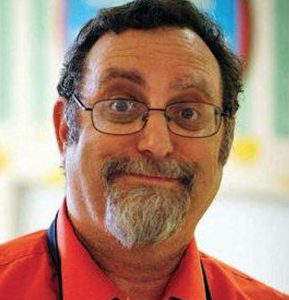Leavitt: As mass murders mount, it’s time we took charge of our own survival
February 21, 2019We’ll continue to face the prospect of random murder by our fellow citizens until we recognize that these killings are not rooted in something that happened.
They occur because of what didn’t happen.
Gary Martin started shooting people in an Aurora factory Feb. 15 as he was being fired from his job. That seems pretty clear.
But why was a factory job worth killing over? When he, himself, would not survive?
Yes, he was known to be violent. He had beaten a woman with a ball bat a few years ago, and she is lucky to be alive. So he was probably a crazy, violent guy.
But that’s not the whole story.
Most of us have something wrong in our heads, some more than others. Some a lot more. But most of us don’t kill anybody or anything, because there is something else that works better for us than killing, and we somehow get it.
We go to therapy, succeed in self-help, or at least find a way to distract ourselves from whatever is bothering us. Mass shootings are usually committed by people who completely fail in that effort.
They are, at base, short, doomed voyages in which the skippers go down with the ships.
They’re suicides, of course. Suicides by men who want company.
Viewed individually, all these random mass shootings may appear very different. But they’re not. They’re almost all the same.
The murderers, whether they’re just a little disturbed, or king-hell crazy, all seem to have something in common. They were rejected at work, by a woman, by their parents or by their friends. By the government. By a group.
They don’t find life worth living if they can’t have what they want. And the rejection, in their minds, is so deep and complete that everyone involved in the shattered relationship — or in their lives as a whole — seems complicit.
So they become non-people, eligible for extermination.
Look at where the murderers go to kill. It’s almost never really random.
They usually go to the headquarters of the rejection, a place where the people who didn’t give them a fair shake hang out. And when they get there, it doesn’t really matter who they exterminate, does it? In some cases, a killer has shot up a school he left a decade before.
There are some exceptions. But they usually illuminate the theme they vary from. When that gambler killed the 58 people in Las Vegas from a hotel window in 2017, didn’t you think something like: This is so different from the others?
The authorities often say that almost all the killers have something in common, “a grievance” against someone or something. But it’s more than a grievance, isn’t it? We all have those.
And they often blame it on mental illness. Fair enough. But mental illness is not rare. Mass killings, even now, still are.
The third thing they bring up is that the vast majority of the killers told somebody, in person or on social media, before they pulled the triggers.
Sometimes, people get the tip and just think, “He’d never really do it.” Usually, someone tells the cops, and they fail to hit the person’s house, looking for guns. At other times, there are no guns yet, but the future shooter is allowed to acquire them later, no problem.
Both public and police have to do a better job with this.
Several years ago, I had a drink with a childhood friend who told me he still raged over bullying in high school. “I just want to kill them,” he said, decades after the fact.
His life since high school seems positive. He has a home and family, a good job and fulfilling hobbies. We talked for a couple of hours, and it was obvious that he had never gotten over his anger, but he had learned to deal with it. Though he wanted to kill his tormentors, he never would.
There was another kid from the same high school who used to sit morosely in the back of his classes. He slinked, head down, along the walls of the corridors.
I twice tried to talk with him, and managed to get a handful of words out of him before I moved away. I have heard that none of the other kids ever exchanged more than a few sentences with him. Two years later, Jeff Fuchs killed himself and his family.
Both of these boys should have gotten therapy when they were in high school. But they didn’t.
Other young men with big problems did get therapy, and often, psychotropic drugs, too. Most of them didn’t kill anyone.
For some people, anger over rejection and alienation softens with time. With others, if left to fester, it gets worse, like cancer.
We should approach mental anguish in our fellow men like the disease it is. If we saw a fellow student or a co-worker bleeding, we’d do something about it. We wouldn’t say, “Oh, what a jerk, he’s getting blood all over the floor.” Well, I hope we wouldn’t.
We often know psychological pain when we see it, because we’ve all had it. We should do something to address that pain, shouldn’t we?
Therapy, at some level, is available at low cost to most people, and shame on us that it’s not there for everybody. It doesn’t always work, but it often does, if it’s well done, and there’s enough of it.
Every day, people tell others to consider getting some help. Otherwise, there would be a lot more mayhem.
It’s not especially awkward to recommend therapy. Almost every movie star in Hollywood has had it. They brag about it.
Or we can walk away.
But someone is going to have to clean up the blood on the floor.








